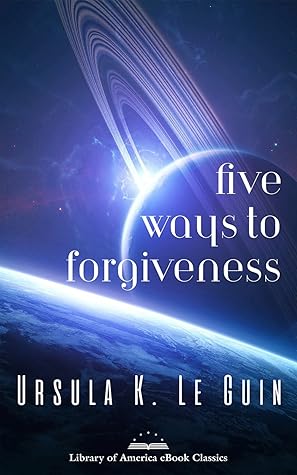More on this book
Community
Kindle Notes & Highlights
Read between
December 26, 2024 - January 1, 2025
In the Arkamye it is said, “To live simply is most complicated.”
“There are two kinds of knowledge, local and universal. There are two kinds of time, local and historical.”
Local knowledge is not partial knowledge, they said. There are different ways of knowing. Each has its own qualities, penalties, rewards. Historical knowledge and scientific knowledge are a way of knowing. Like local knowledge, they must be learned.
“If you want danger, it’s dangerous,” he said, “and if you like hope, it’s hopeful.
All knowledge is local, all knowledge is partial.
“You can’t change anything from outside it. Standing apart, looking down, taking the overview, you see the pattern. What’s wrong, what’s missing. You want to fix it. But you can’t patch it. You have to be in it, weaving it. You have to be part of the weaving.”
“No truth can make another truth untrue. All knowledge is a part of the whole knowledge. A true line, a true color. Once you have seen the larger pattern, you cannot go back to seeing the part as the whole.”
can say only that it may be in our sexuality that we are most easily enslaved, both men and women. It may be there, even as free men and women, that we find freedom hardest to keep. The politics of the flesh are the roots of power.
Ignorance defends itself savagely, and illiteracy, as I well knew, can be shrewd.
Parents who had no schooling had children who entered the net to hear and see and feel what the Chief wanted them to know: that freedom is obedience to leaders, that virtue is violence, that manhood is domination. Against the enactment of such truths in daily life and in the heightened sensational experience of the neareals, what good were words?
“Literacy is irrelevant,” one of our group said sorrowfully. “The chiefs have jumped right over our heads into the postliterate information technology.” I brooded over that, hating her fancy words, irrelevant, postliterate, because I was afraid she was right.
“Well, they mean so much to me because I was illiterate when I came to the City, and it was the books that gave me freedom, gave me the world—the worlds— But now, here, I see how the net, the holos, the neareals mean so much more to people, giving them the present time. Maybe it’s just clinging to the past to cling to books. Yeowans have to go towards the future. And we’ll never change people’s minds just with words.”
“But words are an essential way of thinking. And books keep the words true.
What is one man’s and one woman’s love and desire, against the history of two worlds, the great revolutions of our lifetimes, the hope, the unending cruelty of our species? A little thing. But a key is a little thing, next to the door it opens. If you lose the key, the door may never be unlocked. It is in our bodies that we lose or begin our freedom, in our bodies that we accept or end our slavery. So I wrote this book for my friend, with whom I have lived and will die free.
In her widely quoted speech she calls for “writers who can see alternatives to how we live now, and can see through our fear-stricken society and its obsessive technologies, to other ways of being. We’ll need writers who can remember freedom—poets, visionaries—realists of a larger reality.”


